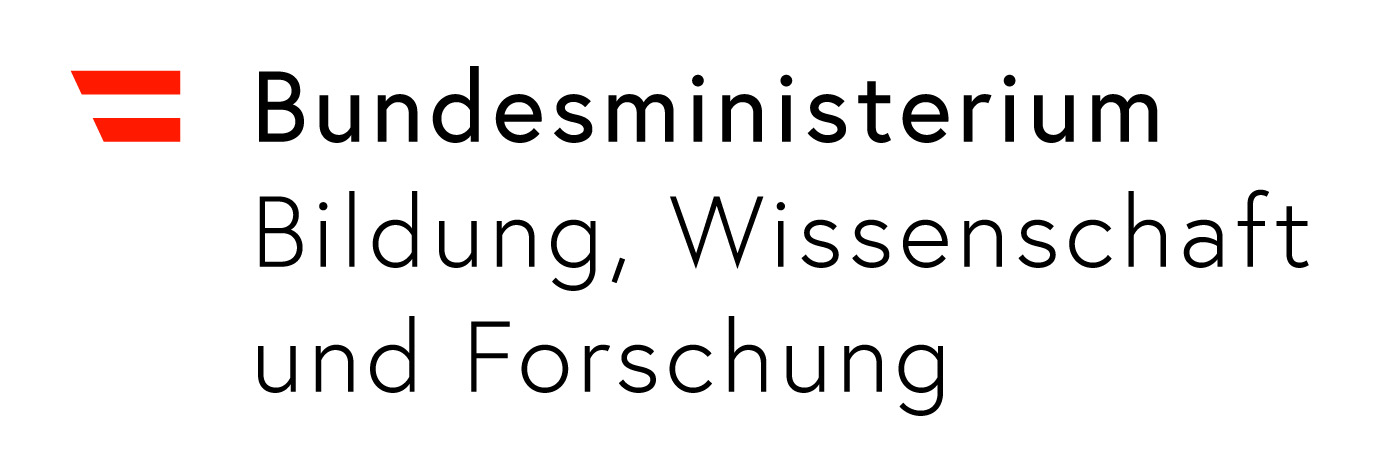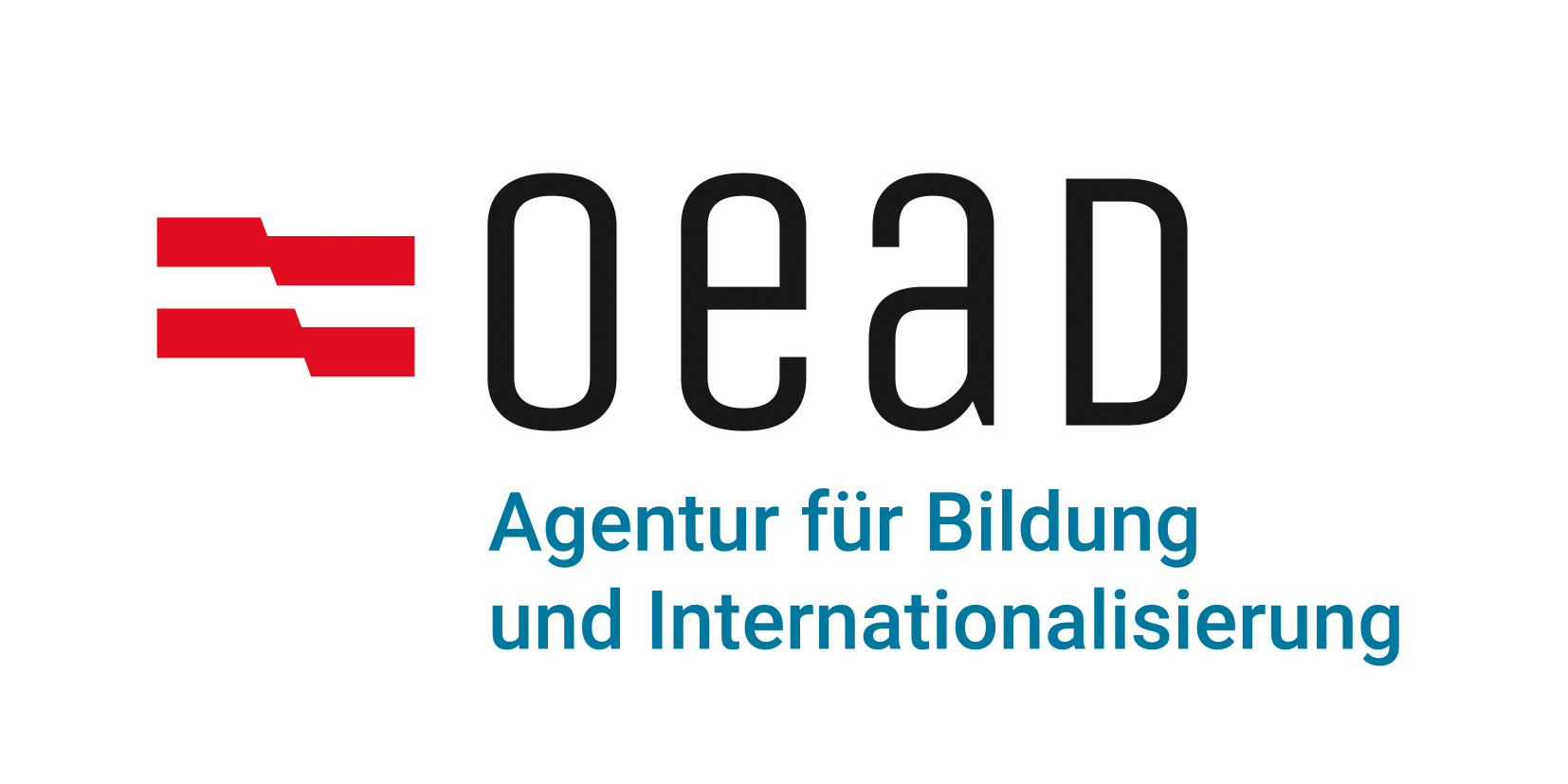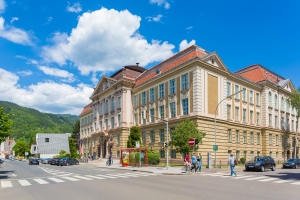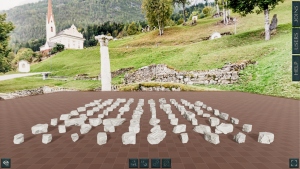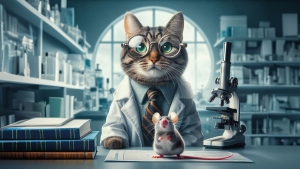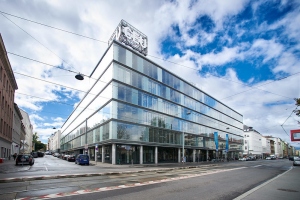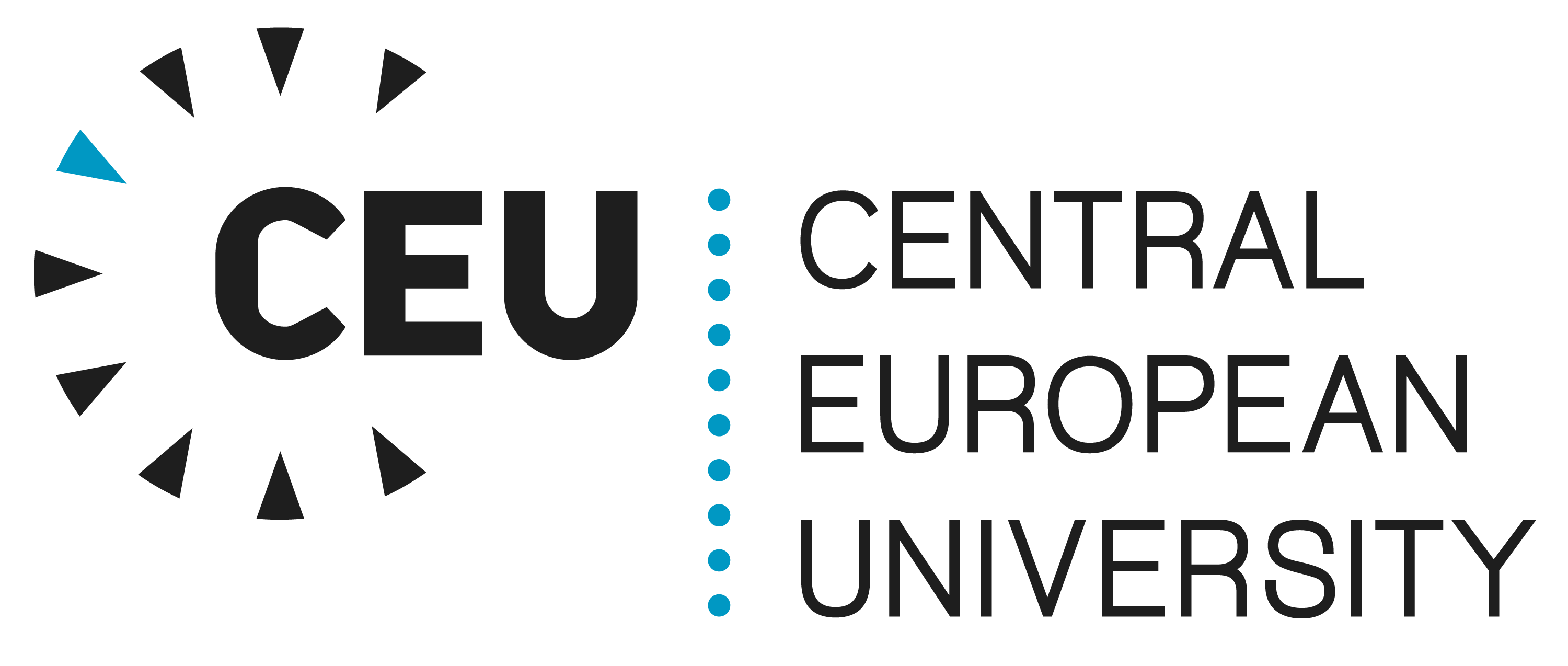
Florian Heigl
Montanuniversität Leoben
Since its foundation in 1840, Montanuniversität Leoben has developed its profile in several phases and today positions itself as a university for "Responsible and Circular Systems". Its expertise extends along the "circularity of systems" from raw material extraction to production processes, a wide range of products and recycling. This is reflected in the central areas of expertise of Advanced Resources, Sustainable Processes and Smart Materials. In these areas of expertise, Montanuniversität Leoben is almost the only university, also internationally, to have a closed knowledge base. In line with this, five core values determine research and teaching in 13 Bachelor's degree programs and 25 Master's degree programs: energy efficiency, climate neutrality, sustainability, zero waste and circular design.
Citizen Science is currently being pursued at Montanuniversität Leoben as part of two Sparkling Science projects in which Montanuniversität Leoben is collaborating with educational institutions from Tyrol and Lower Austria, among others. The focus is on solutions for the utilization of CO2 as well as on access to the topic of resource use in the sense of cultural sustainability research via fairy tales. Montanuniversität Leoben is also contributing chemical analyses of environmental samples and human remains to a project on Neolithic migration in Lower Austria and is working together with a secondary school in Lower Austria.
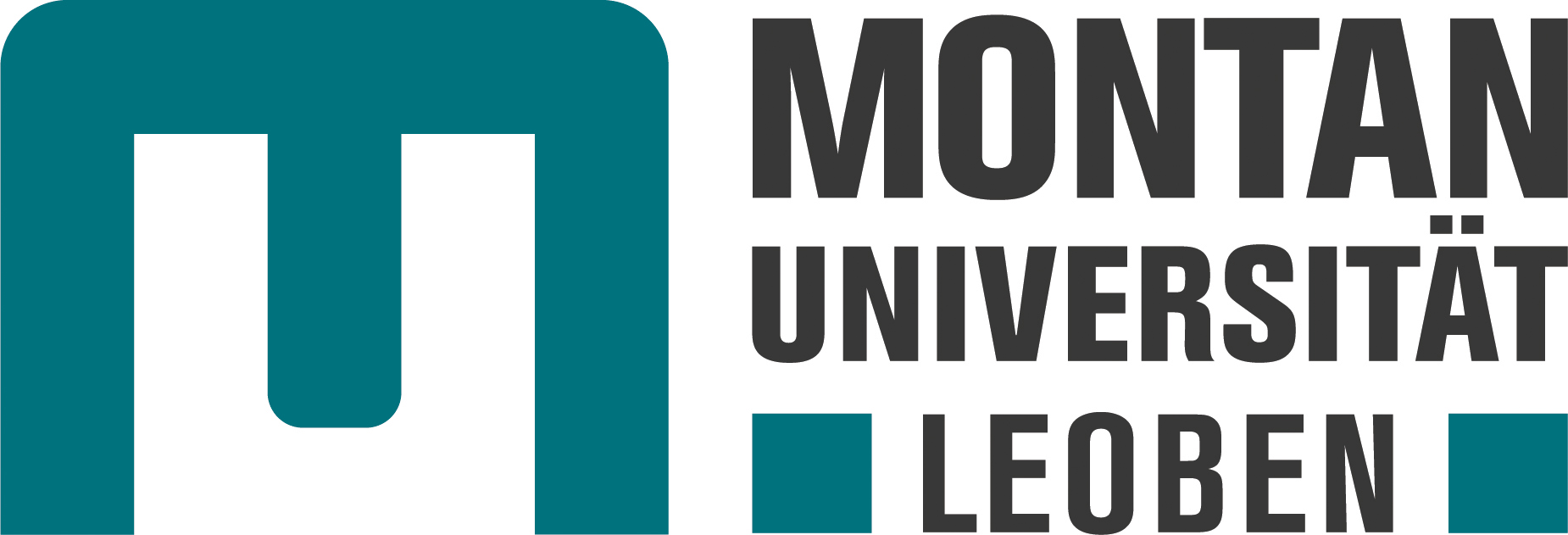
Open Reassembly
Many archaeological artifacts today are only preserved in fragments. Reassembling these parts into their original form is therefore an important but challenging task for archaeology.
Computer-assisted methods can facilitate this task or even partially solve it in some cases. However, due to the usually poor preservation of these artifacts and their potential incompleteness, reliable fully automatic reassembly is rarely possible in practice.
The goal of the Open Reassembly project is to design the solution to such complex tasks as a collaborative process involving many participants and in optimal interplay with computer-assisted methods.
Therefore, we invite Citizen Scientists to be part of this process and work together with other hobby archaeologists to solve these challenging puzzles. On this platform, puzzle experts can virtually reassemble the fragments of an ancient artifact together, evaluate the adjustments made by other participants, and thus earn points for good adjustments.
On their first visit, new users can create a new username in the "New Users" menu and start the puzzle. The system randomly assigns new users to one of several virtual puzzle rooms. Under "Existing Users," they can later continue where they left off.
Further information about the artifact, its archaeological background, and helpful tips for reassembly can be found under the "Artifact Details" menu.
Gallery
-
 View on virtual stone fragments in Open Reassembly View on virtual stone fragments in Open Reassembly
View on virtual stone fragments in Open Reassembly View on virtual stone fragments in Open Reassembly -
 Detail view on some virtual stone fragments in Open Reassembly Detail view on some virtual stone fragments in Open Reassembly
Detail view on some virtual stone fragments in Open Reassembly Detail view on some virtual stone fragments in Open Reassembly
https://www.citizen-science.at/en/imprint/author/934-florianheigl?start=10#sigProId999a219ed1

Show me your mouse, cat!
Your cat - our researcher
Attention cat owners in Vorarlberg! Under the motto "Show me your mouse, cat!", we are collecting dead mice and other small mammals that your cat brings to your home. From June to November 2024, you can hand in these "gifts" from your cat to us or other collection points in Vorarlberg. The aim of this campaign is to obtain as much data as possible on our native small mammals for the compilation of the Vorarlberg Red List of Small Mammals.
A project as part of the Vorarlberg Red List of Small Mammals
HOW DO I COLLECT A DEAD MOUSE?
Because dead animals can carry pathogens or parasites, the following principle applies: Do not touch a dead animal with your fingers!
Therefore, please proceed as follows:
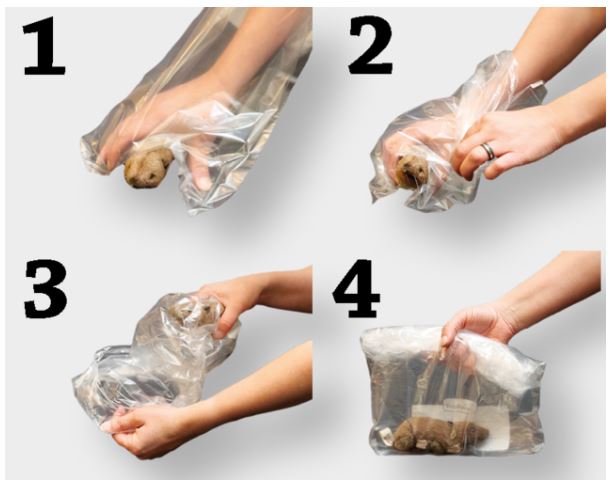
- Take a plastic bag (e.g. freezer bag) and put your hand in it.
- Grasp the dead mouse with your hand in the plastic bag.
- While holding the mouse with one hand, run your other hand along the edges of the bag over the mouse in your hand.
- Use a pencil to write down the following information about the find on a piece of paper: your name, address, telephone number, e-mail address, date or use the form for reporting (in German) a find. Only fully completed forms result in a scientific data record and can/may be recorded.
- Place the slip of paper in the plastic bag with the mouse.
- Seal the plastic bag tightly and in a space-saving manner (no air in the bag if possible)
- Place the plastic bag in the freezer.
- Take the plastic bag to inatura or one of the collection points at the next opportunity. Please do not allow it to thaw (cool bag/box with cool packs).
If you follow this simple method, you are on the safe side.
PLEASE DO NOT SEND THE DEAD ANIMALS BY POST! THE ANIMALS ARE THEN NOT SUFFICIENTLY COOLED AND DECOMPOSE VERY QUICKLY. PLEASE ONLY SEND ANIMALS WITH FUR (NO BIRDS, REPTILES ETC.)!
Small animals - little knowledge!
There are 29 species of small mammals in Vorarlberg. These include representatives of the dormice, birch mice, true mice, shrews, voles, hedgehogs and moles.
We do not know much about the distribution of small mammal species in Vorarlberg. The available data is poor. But it is precisely this data that we need in order to compile the Vorarlberg Red List of Small Mammals. And that's not so easy - because many of the small animals live very hidden lives and are difficult to find. And this is where your cat comes into play. Its hunting instinct makes it a predator - and therefore a co-researcher for us!
The cat in the service of science
Around 24,000 cats live in Vorarlberg (Statistics Austria 2019/2020).
A cat brings home 1/10 of its prey. However, these "gifts" are not usually met with joy by humans and so the small mammals are disposed of as quickly and inconspicuously as possible.
Unfortunately, it has to be said. Because these prey animals provide valuable information. As dead animals, they can be clearly identified to species. Information on sex, body mass and reproduction can also be obtained from the respective species.
You can find information about our small mammals in Vorarlberg at www.laendlemaus.at (in German).
What is close to our hearts!
So that we are not misunderstood - we are expressly not encouraging you to "send your cat hunting" more often (if that is even possible)! But we do think that if mice and other small mammals are already dying, then their deaths should still have a benefit for scientific research.
Free-roaming cats prey on small mammals, amphibians, reptiles and birds. You can find out how you as a cat owner can enjoy your cat and protect birdlife at the same time at www.birdlife.at.
What data is required?
Your name, address, telephone number, e-mail address, date found.
Please use the report form (in German) and fill it out in pencil.
Only with this information can your dead small mammal be used scientifically!
When can dead small mammals be handed in?
From June to November 2024, dead small mammals can be handed in at inatura and at the drop-off points.
Where are the drop-off points? You can find the list of drop-off points on the project website.
Further information on the "Show me your mouse, cat!" project can be found on the project website.
The project is being realised by the nature museum inatura Erlebnis Naturschau Dornbirn together with apodemus OG - Privates Institut für Wildtierbiologie.
Project duration: June - November 2024
Project management:
Dr. Christine Resch, Dr. Stefan Resch, apodemus OG - Privates Institut für Wildtierbiologie www.apodemus.at
Project organisation:
Dipl.–Biol. Anette Herburger, Teamleitung Forschung der inatura Erlebnis Naturschau GmbH

Central European University
Central European University, based in Vienna, brings together students and faculty from more than 100 countries in a close-knit community that promotes dialog and collaboration across borders, cultures and disciplines. Accredited in Austria and the USA, the private university is internationally recognized for its academic excellence and is currently ranked in the top 50 in the world in two fields of study. A deeply interdisciplinary approach permeates all aspects of learning and research, with a focus on real-life research questions.
Founded in 1991, the private university moved from Budapest to Vienna in 2019 and, in addition to its mission to promote an open society, is characterized by high standards in research and teaching.
The CEU Science for Society Hub collects ideas, requests and research questions from civil society organizations, communities, cultural institutions and schools and addresses them in courses, internships, theses and/or research projects. The programme is based on CEU’s many years of experience in running practice- and policy-oriented study programmes and courses in collaboration with external organizations. CEU is committed to open science and actively works in partnerships with social and human rights organizations, environmental institutions, schools, public authorities and international organizations in Vienna and beyond.
City-Zen Boden
“Healthy Soil" research platform for Viennese community gardens
As a follow-up project to "Heavy Metal City-Zen", we are once again inviting Viennese community gardens, garden projects or similar garden initiatives to take part in this project and conduct research together with us.
The aim of this project is to scientifically assess the potential risk of heavy metal contamination of crops in Viennese city gardens and to investigate the extent of soil contamination with microplastics.
We will make the results of the study and additional information on soil health available on our City-Zen soil research platform, which we are developing as part of the project.
Background
Urban gardening has become increasingly popular over the last two decades. However, gardeners are often concerned about their crops being contaminated by pollutants such as heavy metals.
Plant availability of heavy metals is strongly influenced by the soil properties and the plants being cultivated. Through appropriate soil management, it is possible to reduce the potential transfer of heavy metals to plants.
We want to test whether the heavy metal content in plants grown in one variant (e.g. a mix with compost) differs from those plants grown in a control variant (untreated urban soil).
How do we want to test this?
We need you for this! Become a Citizen Scientist by conducting a "pot experiment" with radishes in your urban garden. Plant and soil samples will be collected from these tests and an analysis for heavy metals will then be carried out in our laboratory.
Participation in the project will benefit the entire community of the garden. Together we can generate the following information about the garden's location:
- Whether and to what extent the soil in your garden is contaminated with heavy metals and microplastics.
- If contamination is present, whether the soil treatment you have chosen could reduce the transfer of these heavy metals to the plants.
- We can also do on site measurements of soil and plant parameters such as pH and yield.
Further information on the project can be found on the website.
Who can take part in the "City-Zen Soil" project?
- People who are involved in a community garden, garden project or similar garden initiative.
- These gardens are in Vienna.
What do I have to do to take part in the project?
Simply write to us by e-mail if you are interested in taking part: This email address is being protected from spambots. You need JavaScript enabled to view it.
The project is funded by the Vienna Business Agency. A fund of the city of Vienna.
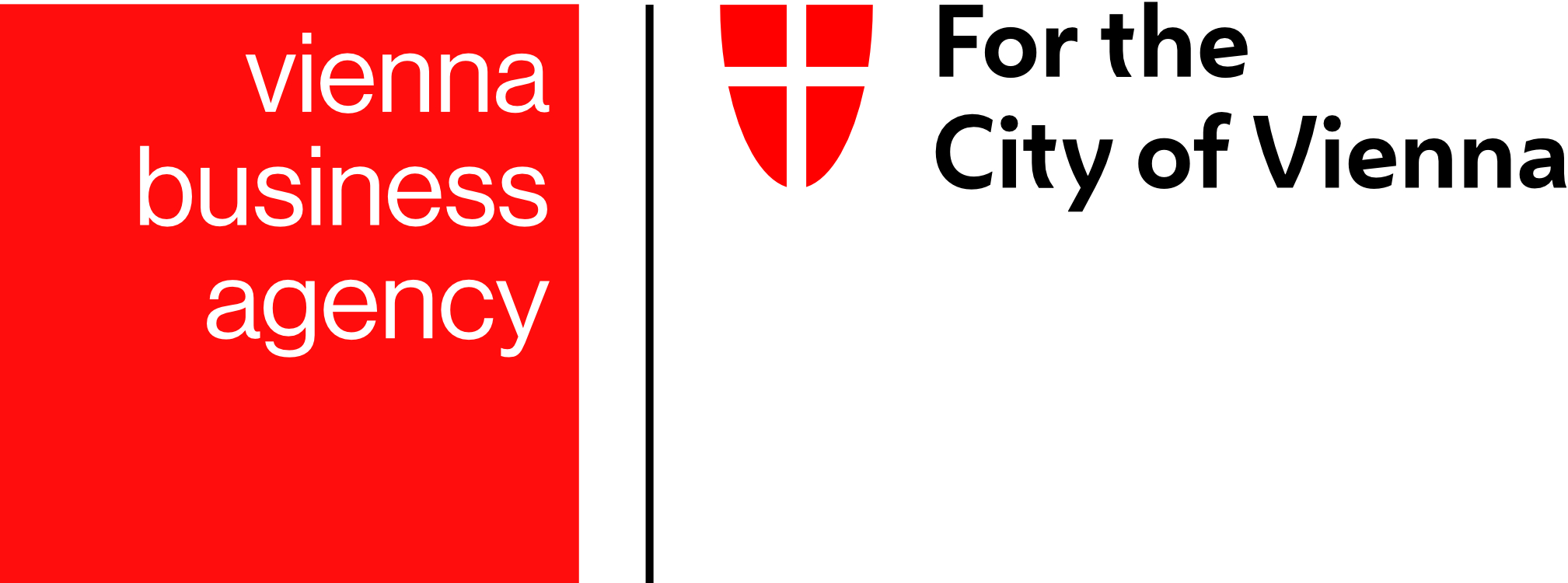
The results of the "Heavy Metal City Zen" project can be found in our blogpost (in German) and on our project website.
Global Underwater Explorers
The Global Underwater Explorers (GUE) was founded 25 years ago by a small group of research-minded students in Florida. Their initial goal was to explore the unexplored caves of the region. But what emerged from their endeavours went far beyond pure exploration.
Driven by the diversity of skills in their team, the founders recognised the need for a standardised approach. Thus, the concept of "Doing It Right" (DIR) was born. At its core, DIR advocates uniformity in equipment and skills for both research divers and support staff, setting a global benchmark for excellence.
Today, GUE – and so GUE Austria too – stands as a beacon within the global diving community and is involved in a variety of projects spanning cave exploration, wreck diving and environmental protection. Our team operates at the highest level of diving and is capable of conducting dives to depths of over 100 metres. Our unwavering commitment to safety and teamwork is always paramount.
KoKo-Health
Giving a voice to children and adolescents: Co-research with children and adolescents in developing a model of health literacy
Background
Health literacy is crucial for promoting health and well-being It encompasses finding, understanding, evaluating, and applying health information and services to make informed decisions for maintaining or improving health and quality of life. This competency is important at every stage of life, including in childhood and adolescence. However, existing models of health literacy in childhood and adolescence are merely based on adult-oriented concepts and neglect the understanding and perspectives of children and adolescents as experts in their own lives.
The Project 'KoKo-Health'
The project 'KoKo-Health' is conducted by the University for Continuing Education Krems, Gesundheit Österreich GmbH, and the Technical University of Munich. 'KoKo-Health' aims to develop a model of health literacy from the perspective of children and adolescents. To achieve this, we intend to involve children and adolescents as co-researchers in the research process, building upon existing literature to ensure that their perspectives are well represented in the model. Together with children and adolescents aged 10 to 19, we aim to explore how children and adolescents stay healthy, make health-related decisions, and understand health. In this project, we mainly focus on how the collaborative research activity strengthens the competencies of the young co-researchers. Additionally, we will support them in their ability to act as co-researchers. Their active involvement should in turn promote their health literacy.
In addition to the participating children and adolescents who act as co-researchers, a youth advisory board is also part of the project. With the youth advisory board, we want to discuss questions regarding the implementation of the project and seek advice from young people who are experts in their own life-world regarding the optimal implementation of the project. The co-research will start in May 2024.
Opportunities to participate
We are currently looking for the following participants:
- Children and adolescents aged 10-19 who would like to research together with us on the topic of health (registration here)
As a token of appreciation for your commitment and time, we offer a small compensation!
HealthFerm
The sourdough microbiome
Attention sourdough bakers and fermentation enthusiasts - HealthFerm is researching plant-based and fermented foods you eat and raise in your home!
Fermented foods are present both in our daily diet and in various food cultures: from sourdough bread to beer, wine, pickles, sauerkraut, miso, kombucha, and much more. The art of fermentation is (again) on the rise, and many people are making their own fermented foods at home. Can fermentation help us transition to a more plant-based diet? The European research project HealthFerm aims to investigate the connections between the microorganisms involved in food fermentation, the fermented foods resulting from these processes, and their effects on human health.
Here's how you can participate:
Project participants are asked to provide information about their fermentation practices and their attitude towards fermented foods using two questionnaires. Based on this feedback, the researchers will select 1,000 participants who can submit their fermented foods for analysis, with an initial focus on sourdough. The results from the lab will then be made available. For example, you can learn how many cultures are thriving in your sourdough and how common they are!
Simply visit this website, available in 7 languages.
What happens next:
The data on microorganisms, genomes, and metabolites discovered in the fermented foods of participating citizens will be available in an openly accessible online atlas of the food microbiome. There, participants can evaluate and compare the microorganisms from their fermented foods.
The microorganisms obtained from the submitted foods will also be used to develop innovative fermentations of legumes and grain-based foods. One focus is on developing fermented foods as alternatives to dairy- and meat-based foods.
Furthermore, the health effects and consumer perception of novel fermented foods will be investigated. This is intended to promote the incorporation of these foods into commonly practiced dietary habits in Europe. Building and nurturing an ecosystem with various interest groups and researchers will help achieve a lasting impact beyond the project.
For those who want to stay updated without participating, regular reading of the HealthFerm blog is recommended.
Frog in a drop of water
State-of-the-art DNA technology and citizen science - "Frog in a drop of water" unleashes new prospects for amphibian research
Detective work for amphibian protection - for the first time, amphibian screening is being carried out throughout Austria by detecting their DNA traces in water - and everyone can take part. Amphibians - including frogs, toads, toads, salamanders and newts - are strictly protected in Austria. Nevertheless, populations are continuously and in some cases dramatically declining, which is mainly due to habitat loss.
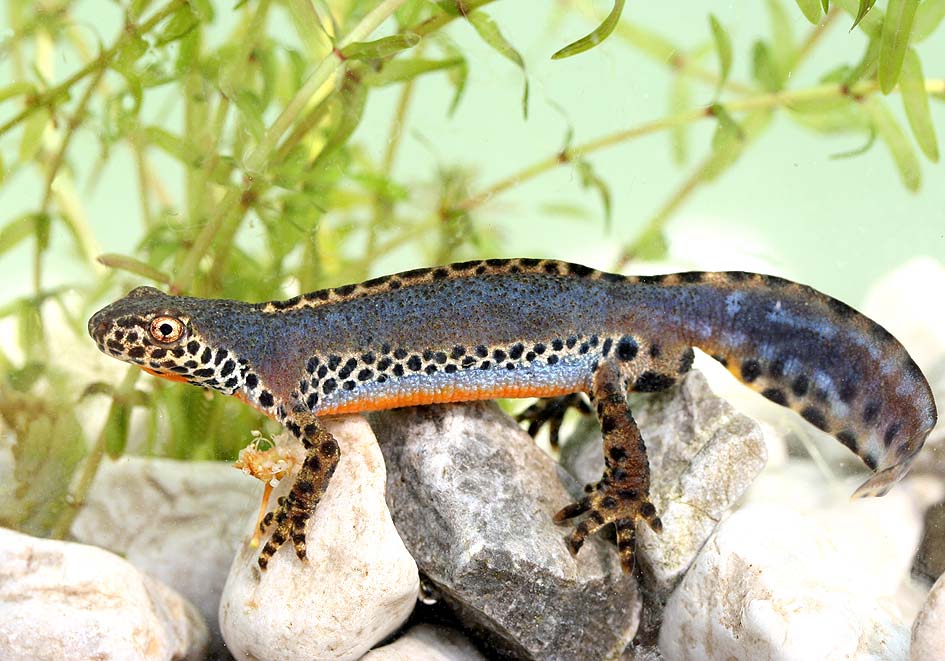
Natural, private garden ponds can play an important role. They act as important possible retreats, but are usually not accessible to the public. In addition, there are often small and amphibian-rich waters that are only known to those familiar with the area. This is where citizen scientists come into play: Their efforts make a valuable contribution to species records and data on the distribution of the amphibian fungus Batrachochytrium dendrobatidis, or Bd.
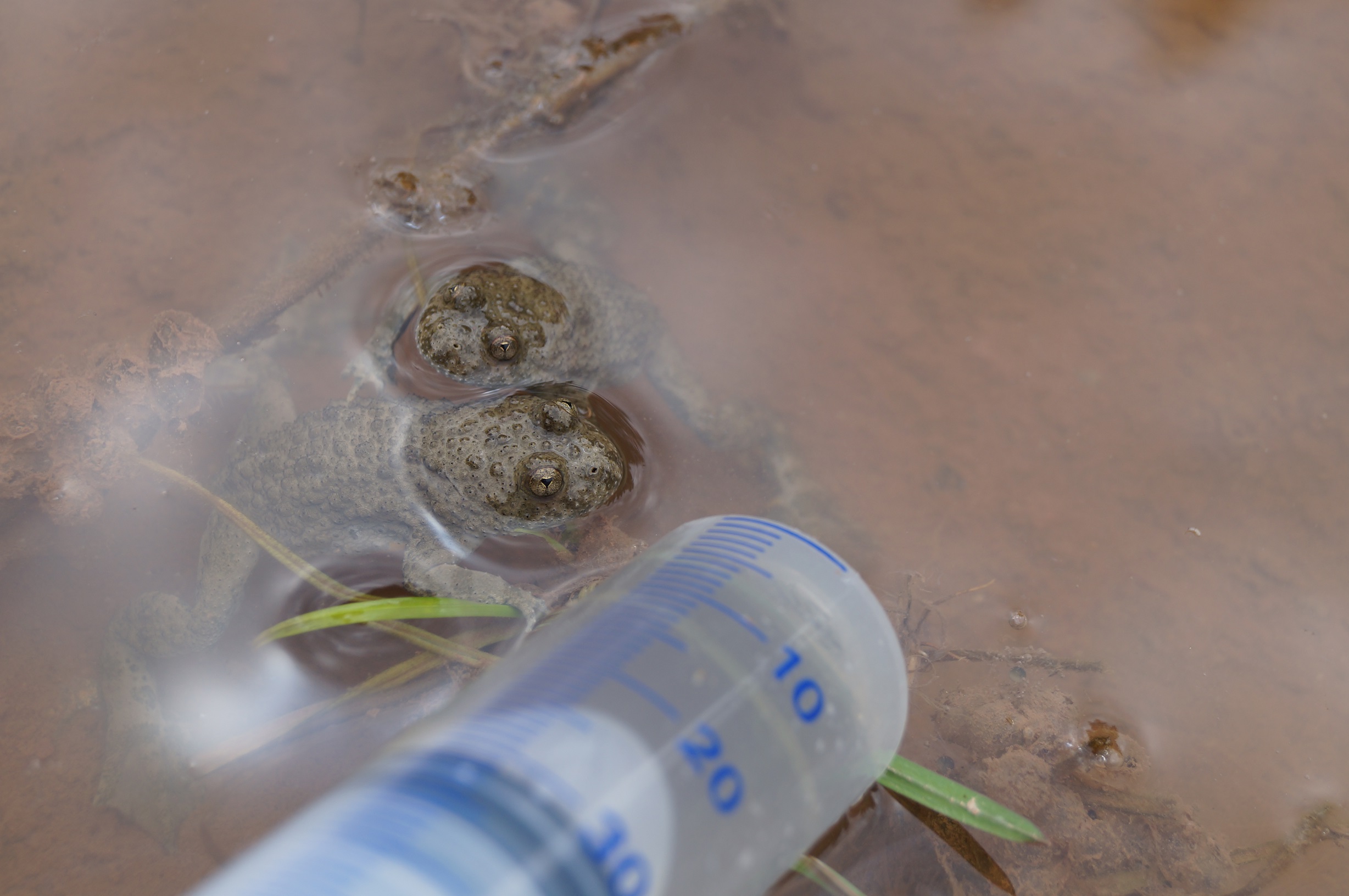
Interessierte aus ganz Österreich konnten sich bis Ende März bewerben, Ende April wurden 1.120 Beprobungskits versendet. Über eine kinderleichte Probennahme können die kostbaren DNA-Spuren, die von Lebewesen im Wasser hinterlassen werden, herausgefiltert werden. Durch eine einfache Wasserprobe kann also die Artenvielfalt im Teich, sowie das Vorkommen von Bd erfasst werden. Dazu wird der fertige Filter an die Uni gesandt, im High-Tech Labor analysiert und bioinformatisch ausgewertet. Die Ergebnisse werden im Herbst 2024 veröffentlicht.
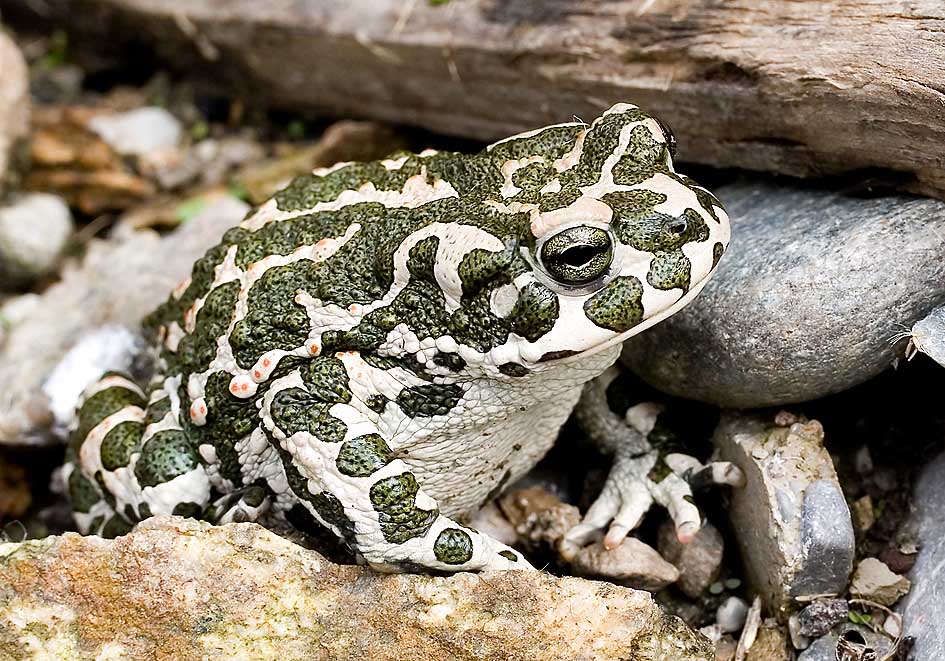
Videos zum Projekt
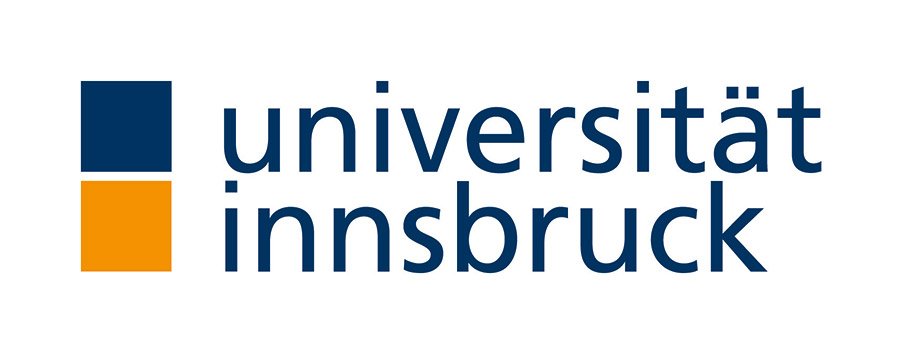
Why Math?
Relevance of mathematics lessons from the students' perspective
The relevance that students attribute to mathematics education is a crucial variable for its success. Against this background, it is surprising that there is little international scientific evidence on these ideas. Instead, it is evident in various countries, including Austria, that students in secondary school have at best fragile ideas about the relevance of mathematics instruction: For example, it is usually emphasized that mathematics instruction serves to cope with everyday situations, but then it is also quickly recognized that this explanation does not apply to the content currently covered in class. Against this background, it is questionable how these ideas can be captured and further developed in order to enable more students to learn mathematics in a meaningful way. In this sense, this project sees itself as a contribution to the further development of mathematics education in Austria and beyond.
This project relies on the expertise of students as Citizen Scientists in the collection and analysis of data. The project aims to identify phenomena and generate explanations. The guiding research questions are which ideas about the relevance of mathematics education exist, how these can be meaningfully collected, and how they can be developed and evolve.
Students from four eighth- or ninth-grade classes at two middle schools and two high schools will participate. They will be interviewed first, but are already active as Citizen Scientists in the analysis of the data by adding their perspectives to those of the research team. At a research day at the university, further ideas on relevance to mathematics are presented and discussed with them. Some students stay on longer in the project if they wish, refining the survey instrument, collecting data themselves in parallel classes, and evaluating it on a second research day. The added value for the students involved is, on the one hand, that they gain insights into how the research results come about and, on the other hand, that they themselves can open up new dimensions of the relevance of mathematics for themselves. Teachers learn new methods to address the relevance of mathematics in the classroom and to motivate their students for mathematics lessons.
This is a project funded by the Federal Ministry of Education, Science and Research.
